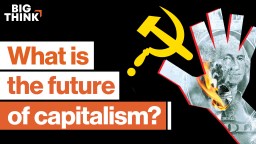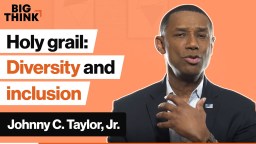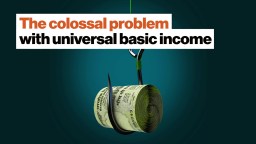HEATHER HEYING: The concept of diversity is honorable and is being weaponized by people who are not, I think, actually interested in true diversity across all demographics. Diversity could be understood merely at a "we can count this by what you look like and how you identify - your ethnicity, your sex, your sexual orientation, your able-bodiedness," these sorts of things. And these are all real ways that humans differ, and the more varied the life histories and the demographics there are in any particular organization, the more likely there are to be unique solutions to problems that emerge because of the different ways that people with diverse backgrounds will approach questions.
However, socioeconomic diversity, which is not often talked about by many of the people who are currently talking about diversity, is in some ways a better predictor of having things like viewpoint diversity and experience with the real world and being able to actually solve problems on the fly, either the physical or the social sort because they've had to. Because people who are emerging not from the elite and the upper middle class have actually often had to solve problems in a way that those of us who grew up with greater economic privilege didn't have to. We may have chosen to put ourselves in these situations, but even so when it's a choice it's different.
So diversity is a good, but we are not hearing nearly enough about socioeconomic diversity and we are also not hearing nearly enough about viewpoint diversity, which is hidden, which you can't wear on your sleeve: I mean you could you could wear a T-shirt that proclaims some things, but the only thing you can proclaim on a T-shirt is an ideology. You cannot proclaim a nuanced worldview except through extended conversation. Most people who have arrived at their beliefs and their values and their worldview through, first, principles as opposed to through accepting something by rote that was handed to them pre-scripted actually don't fall entirely into a particular ideology. Most of us have views that would sound pretty Democratic and also have views that would sound maybe a bit Republican and some views that are moderate and probably most of us have some extreme views on some topics, and it's not going to be the same mix for anyone. And we find that through talking with one another.
That diversity, which is diversity at the individual level for people who are not ideologues, who have actually arrived at their positions through careful nuanced intellectual but compassionate thought about the world - that's the kind of person that you want in a boardroom. And if those people all look the same in terms of their sex or the color of their skin I would say there's probably some diversity that you're missing that you could stand to gain. But the idea that you can't have diversity of life experience and diversity of opinion and diversity of what people actually come to offer in a room of people who appear to look the same by the metric that we are currently being told to use seems far off base to me, that diversity for the countable phenotypic characteristics should not be the highest goal.





